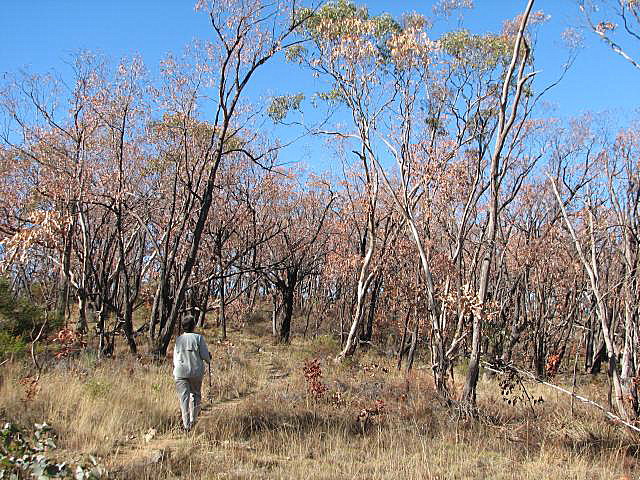
|
|
|
|

|
Climate change damage at
Clare, South Australia |
|
So, what went wrong?
The sheep problemThe first point above is illustrated by some research done by a team led by Noah Goldstein (Scientific American) did. Large hotels waste millions of litres of water, lots of detergent and a substantial amount of energy in washing towels that could be reused by the same guests. Signs were put up telling guests that if they throw their towels on the floor they will be laundered, if they hang them up they will not. Guests were asked to do the right thing environmentally and reuse their towels.Few people hung their towels up. The sign was then replaced another saying something like 75% of guests want to save energy, detergent and water, and hang their towels up to indicate that they didn't want them laundered. This was much more effective. If people thought that most others were being environmentally responsible in this way they were willing to follow the crowd.
In the words of Handle's Mesiah: "For we like sheep have gone astray".
Addicted to cheap energyThree hundred years ago our energy came from our own muscles and from those of our draught animals. A significant proportion of a farm was required to produce food for the draught horses, perhaps a eighth (I have read it, but not been able to find a reference). Our energy and the energy of our draught animals was valuable.Around the end of the ninteenth century the motor car with its internal combustion engine was invented. According to Autoblog the engine of the Model T Ford, released in 1908, developed about 20 horsepower. Energy became more accessable and cheaper. Autoblog tells us that by 1955 the average car was developing around 140 horsepower and by 2009 it was up to 247. So long as we could pump oil out of the ground and burn it for energy we had a plentiful supply of energy, and we became addicted to it. A similar story could be told about the development of electric power, but this was often (especially in Australia) generated by burning another fossil fuel: coal rather than oil.
In the early twentyfirst century we need to kick the cheap fossil fuel
energy habbit, but we can't.
The "It's too big a problem" problemClimate change is the obvious case-in-point here. It is going to change that world as we know it, and not at all for the better. Yet very few people are trying to do anything about it.
If there is a small, local problem, chances are there will be a number of
people who will push for something to be done about it.
If there is a regional problem, many will think "this is too big for me, I
can't do anything about it, someone else will fix it".
If the problem is global, even more will 'pass the buck'.
Climate change denialMark Latham wrote a piece for the Financial Review titled 'Climate change denial not just for fools'. Latham discusses his observation on how many people, and not just stupid people as one might expect, are denying climate change. He comments on work done by a 'leading public interlectual', Robert Mann, who has looked into the phenomonon in some depth. Latham calls the movement an 'anti-enlightenment', which seems to me to be remarkably apposite.(Like so many of us, Mark Latham has his good points and his bad points. It is harder to find redeeming points in ex Australian PM Tony Abbott who was recorded saying "climate change is crap".)
Anti-enlightenmentDecline in science and philosphy?One has only to go into a book store to see how many people are reading 'new-world' books rather than science or philosophy. Book shops are particularly unlikely to stock many philosophy books; perhaps this is because people don't want to have to think; they want someone else to give them pat answers on how they should live.In the USA 42% of the people believe that the Earth is less than 10,000 years old. Many sciences: astronomy, cosmology, nuclear physics, geology, geomorphology, genetics, biology, etcetera, tell us that the world has to be much older. Even common sense will tell a thinking person that the world could not have come to be as it is in 10,000 years. I believe that the same denial of that particular established fact is common among Muslims. The religion delusion can be blamed for many human failings. Decline in quality journalismThe rise of free news on the Internet has resulted in a marked reduction in the sale of newspapers. This has reduced profitability and forced cut-backs, which seem to have resulted in more rushed newspaper stories with the result that quality suffers. (I have written a response to a particularly poor example of journalism about a wind farm elsewhere.) |
|
|